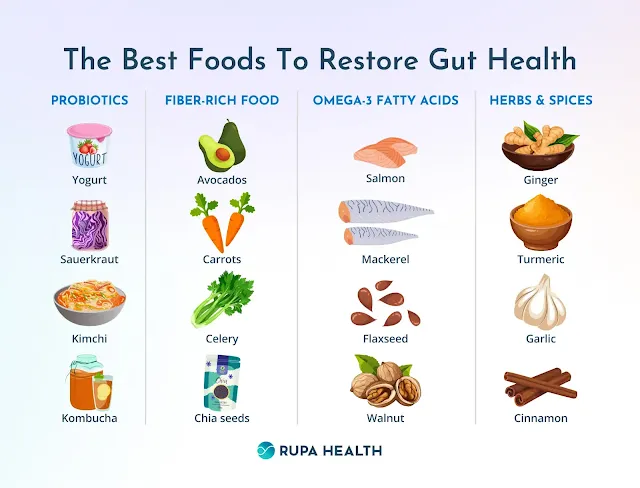Gut Health Boosts: A Guide to Nurturing Your Digestive System
.png)
In conclusion, gut health is a cornerstone of overall well-being. By focusing on a balanced diet, managing stress, exercising, and making time for rest, you can take proactive steps toward nurturing a healthy, diverse microbiome. Prioritizing these aspects of health can improve not only digestion but also contribute to increased energy, enhanced immunity, and a brighter mood—proof that taking care of your gut truly benefits you from the inside out.
Conclusion
Digestive enzymes play a crucial role in breaking down the foods we eat into nutrients that our bodies can absorb, promoting smoother digestion, enhanced nutrient absorption, and overall gut health. Enzymes like amylase, protease, and lipase help break down carbohydrates, proteins, and fats, respectively, ensuring our bodies can fully utilize the vitamins and minerals from our diet. By improving nutrient absorption, digestive enzymes support gut microbiome balance, reduce bloating, gas, and discomfort, and decrease the workload on the digestive tract, making them beneficial for those with digestive sensitivities or conditions like IBS or leaky gut.
1. Best foods to improve gut health naturally
2. How to boost gut health with fermented foods
3. Probiotic-rich foods for a healthy gut
4. Benefits of prebiotics for gut health improvement
5. Natural ways to restore gut health after antibiotics
6. Gut health supplements for digestive balance
7. How gut health affects mental well-being
8. Top habits for maintaining a healthy gut microbiome
9. Foods that harm gut health to avoid
10. Tips for balancing gut bacteria for better digestion
11. How to support gut health with daily practices
12. Anti-inflammatory diet for gut health improvement
13. Signs your gut health needs improvement
14. Impact of stress on gut health and how to manage it
15. Gut-friendly recipes to improve digestion
16. Best herbs and spices for gut health benefits
17. How hydration affects gut health and digestion
18. Gut health and skin health connection explained
19. Top lifestyle changes for long-term gut health
20. How to naturally reduce bloating for gut health

.jpg)


.jpg)


